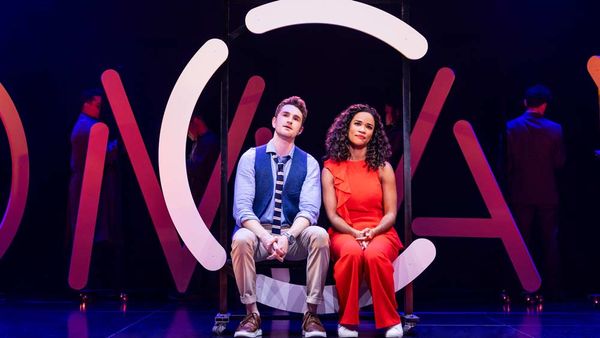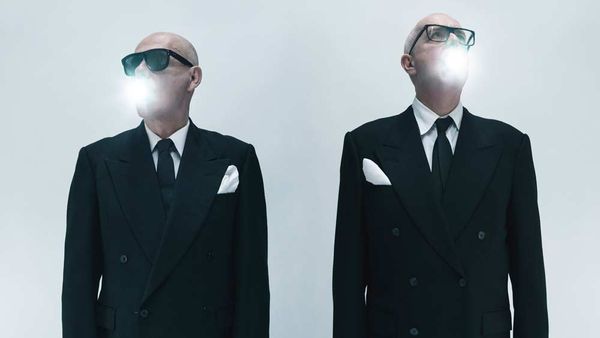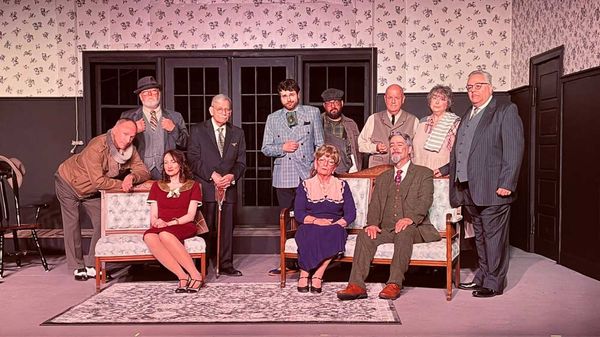March 20, 2010
Looped
Steve Weinstein READ TIME: 4 MIN.
We all know and love our drag queens. But what about the real-girl drag queens (RGDQs)? There are certain women who - in their oversized personalities, their open obsession about sex, their salty language, their attire, their voice - that is way too womanly to be female.
Perhaps the most famous RGDQ was Tallulah Bankhead. The daughter of plantation aristocracy - her grandpa and uncle were both U.S. senators, and her father reigned over the U.S. House of Representatives as the speaker (which put him third in line to succeed as president) - she was more famous for her quips, recreational drug use and oversized sex drive than for her not-inconsiderable acting talents.
Bankhead, like Ethel Merman, was one of those New York stage personalities who could never manage to shrink their personas down a little bit for the camera. So, while she starred on Broadway in landmark plays like The Little Foxes, Dark Victory, Antony and Cleopatra, and The Skin of Our Teeth, the only recorded work for which she is now remembered is the Alfred Hitchcock war story Lifeboat and playing herself on TV's Luci-Desi Comedy Hour.
Most biographers now consider Bankhead to have been her own worst enemy. Her "I don't give a fuck" attitude may have won her legions of gay fans, but it didn't win her any friends in the business suites that ran Hollywood or Broadway.
In Looped, playwright Matthew Lombardo has given us the full Tallulah. Purposely hanging the action on the slimmest of threads -�Bankhead has been called in to overdub a line from her final film, the campy-dreadful Baby Jane rip-off Die! Die! My Darling -�gives his Tallulah the opportunity to expostulate on life, drugs, cigarettes, lovers of both sexes and anything else except that one line.
The play has one other actor (not counting the editor in a sound booth above the recording studio, who mostly interjects sarcasm when needed), an editor roped into trying to get Bankhead to say the damn line. This shaggy dog story winds around every little thing, until, in the second act, the engineer is so bedraggled that he allows Bankhead to drag out of him his deep, dark secret.
It's here that this wisp of a play turns from amusing to just-plain weird. Out of left field, we get a mid-1960s confessional of a closeted man. Even if it hadn't come out of nowhere, it's nothing we haven't heard a million times before - in more proper contexts. For much better examples, head a few blocks north for The Temperamentals.
Looped, however, has one advantage that that sincere historiography of the earliest gay-rights pioneers lacks: Valerie Harper. Those who only know this wonderful actress as Mary Tyler Moore's foil are in for a very pleasant shock.
Long before she morphed into Rhoda, Harper had been a treading the boards in New York. She is a real trooper, and in Looped, she sinks her teeth into an uncanny Tallulah impersonation that brings a surprising roundedness to the famous dragon lady.
Harper has all of the mannerisms down, including the famous "dah-ling." But she also brings out the vulnerability of an actress who knows she's on the skids and has too much self-awareness not to understand how she has sabotaged her career.
There are several leitmotifs floating around Looped, but the one with the most resonance is Bankhead's relationship with Blanche Dubois. Although I wouldn't call it "the best role ever written for a woman" (as she does here), it's certainly a damn good one. At least, it's the best role for an aging Southern belle, that's for sure.
Bankhead relates the infamous occasion of her playing A Streetcar Named Desire in Coconut Grove to an audience that laughed at all the wrong parts. Bankhead sensed that they were coming to see a campy drag queen, not a serious actress. The second time she limns the role in Looped, we see what she could have done with the part.
It's heartbreaking, but it's also a beautiful affirmation: Bankhead knows in her head and in her heart that she had been a great actress - even if the public and the industry couldn't see it.
Lombardo's loose string of a play allows Bankhead to reminisce, which means we get lots of those famous quips. I do wish he had worked in my absolute favorite - when asked if Tab Hunter (with whom she starred in a disastrous Broadway production of another Williams vehicle, The Milk Train Doesn't Stop Here Anymore) was gay, she replied, "I don't know, darling, he never sucked my cock."
But there are more than enough bon mots strewn around like the cigarette ashes she leaves in her wake to make this evening highly enjoyable for any devotee of high camp and the kind of women who made it possible.
Steve Weinstein has been a regular correspondent for the International Herald Tribune, the Advocate, the Village Voice and Out. He has been covering the AIDS crisis since the early '80s, when he began his career. He is the author of "The Q Guide to Fire Island" (Alyson, 2007).




